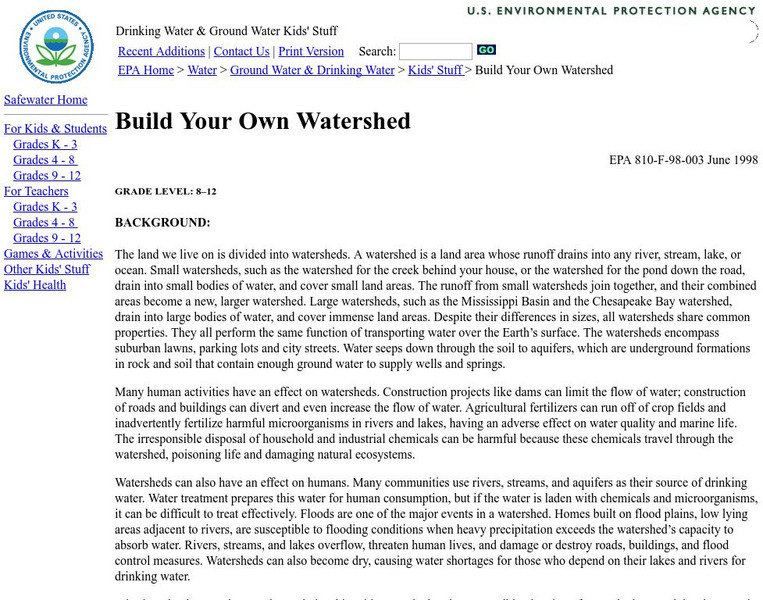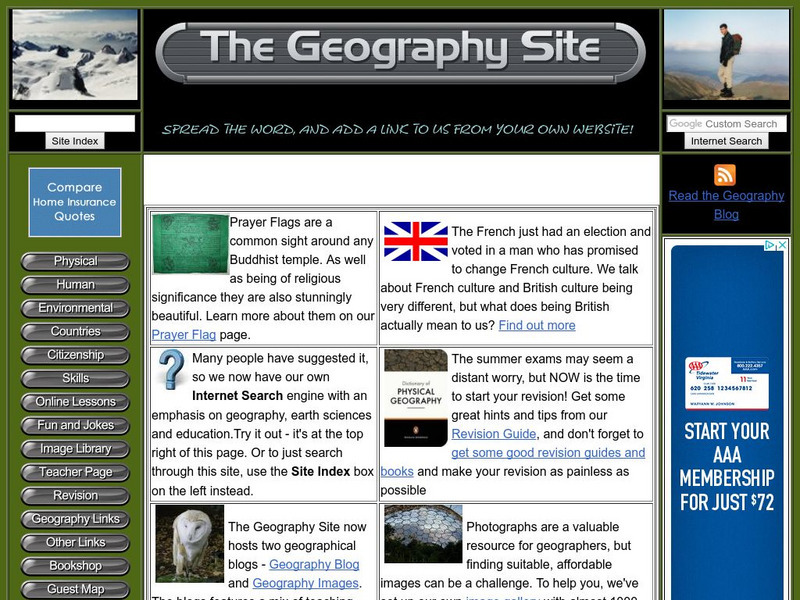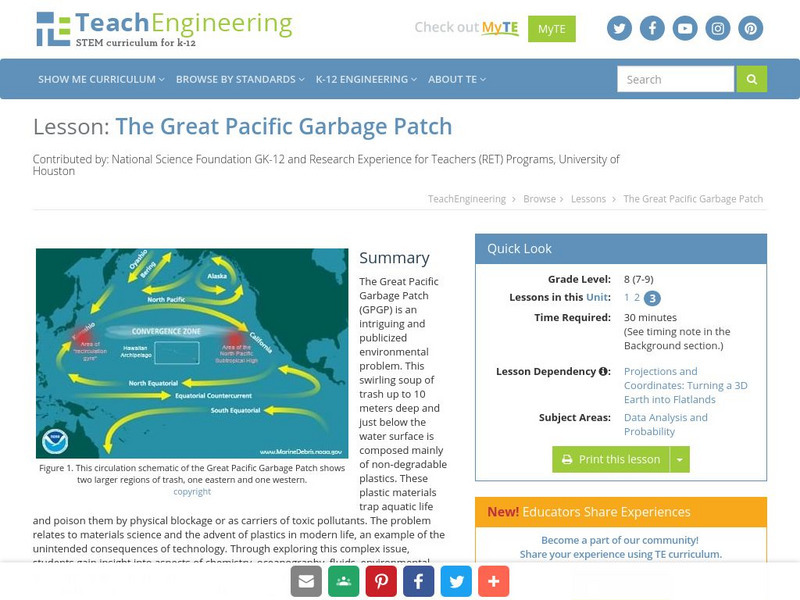US Environmental Protection Agency
Epa: Excuse Me, Is This the Way to the Drain Pipe? [Pdf]
Ever wonder where your drinking water comes from? And what happens to it after you're done? "Excuse Me, Is this the Way to the Drain Pipe?" is a great story and lesson plan about a drop of water going through the water cycle and through...
The Franklin Institute
The Franklin Institute Online: Slick Sea Spills
Use this site to promote environmental awareness in your classroom with this instructional activity on the effects of oil spills on water habitats.
Science Education Resource Center at Carleton College
Serc: Can We Revive Lake Erie's "Dead Zone?"
This Ohio Sea Grant website features a WebQuest-like activity that explores the development of a dead zone, an oxygen-deprived area where there is no life, in Lake Erie. The activity aims to teach students about the processes that...
Virginia Institute of Marine Science
Virginia Institute of Marine Science: Ghostbusting in the Chesapeake
Because abandoned crab fishing pots can create havoc in the marine ecosystem, scientists and fishermen are researching ways in which to collect them. In this lesson students will explore catch data collected by the watermen from the...
US Environmental Protection Agency
Epa: Build Your Own Watershed
How can you learn to build your own watershed? This site features an activity to illustrate the basic properties of a watershed. Don't miss out.
TeachEngineering
Teach Engineering: Life Science
This unit covers the processes of photosynthesis, extinction, biomimicry and bioremediation. In the first lesson on photosynthesis, students learn how engineers use the natural process of photosynthesis as an exemplary model of a complex...
TeachEngineering
Teach Engineering: An Underground River
Groundwater is one of the largest sources of drinking water, so environmental engineers need to understand groundwater flow in order to tap into this important resource. Environmental engineers also study groundwater to predict where...
TeachEngineering
Teach Engineering: Oil Spill
This activity will allow students to explore an important role of environmental engineers: cleaning the environment. Students will learn details about the Exxon Valdez oil spill, which was one of the most publicized and studied...
Other
The Geography Site
The Geography Site offers many links for your geography research. Links offered are to physical geography, human geography, environment, online lessons, and much more.
Other
Canal Kids: Biodiversidade (Biodiversity in Portuguese)
A look at biodiversity geared toward younger students but with very good subject depth. Topics include the human genome, water, soil and wind, pollution, and reckless exploration of the rainforest. In Portuguese.
abcteach
Abcteach: Earth Day Activities
[Free Registration/Login Required] How can you treat the earth with more respect? Check out this resource featuring links to elementary activities to celebrate Earth Day. You will find word searches, crossword puzzles, reading...
Other
K 3 Learning pages.com: Earth Day Links
How can you celebrate Earth Day in your classroom? This collection features several downloadable Earth Day worksheets including word searches and coloring pages. Students and teachers can plan the perfect way to recognize the environment.
TeachEngineering
Teach Engineering: Introduction to Environmental Engineering
Students are presented with examples of the types of problems that environmental engineers solve, specifically focusing on air and land quality issues. Air quality topics include air pollution sources, results of poor air quality...
TeachEngineering
Teach Engineering: The Great Pacific Garbage Patch
The Great Pacific Garbage Patch (GPGP) is an interesting and somewhat publicized environmental problem. A swirling soup of trash up to 10 meters deep and just below the water surface is composed mainly of non-degradable plastics. These...


![Epa: Excuse Me, Is This the Way to the Drain Pipe? [Pdf] Lesson Plan Epa: Excuse Me, Is This the Way to the Drain Pipe? [Pdf] Lesson Plan](https://content.lessonplanet.com/knovation/original/38691-8e8499c77a908b9761fec8738a536bad.jpg?1661255988)











